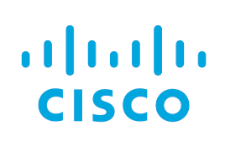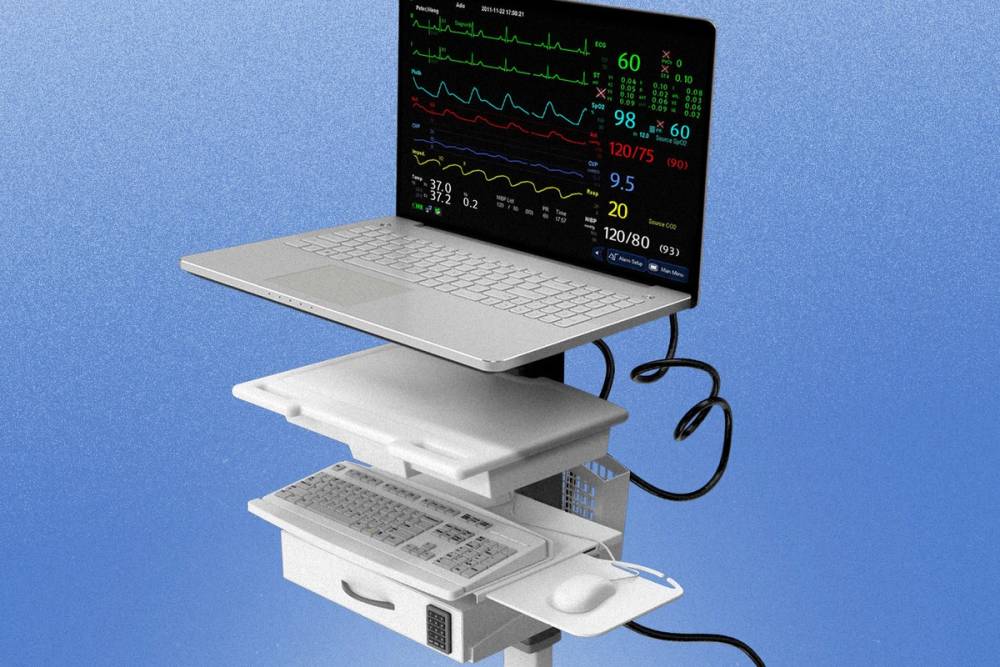Nadia_bormotova/Getty Images
When a patient walks into a doctor’s office for the first time, they’re typically asked to fill out a patient intake form that asks questions like what surgeries they’ve had in the past, what medications they’re on, and details of their family medical history.
Missing from many intake forms are detailed questions about a patient’s sexual orientation and gender identity, known as SOGI data. Yet SOGI data is important in providing comprehensive patient care, Elizabeth Moore, director of health services research and evaluation at HealthHIV, who also works as a nurse practitioner, told Healthcare Brew. HealthHIV is a national nonprofit that advocates for equitable healthcare for LGBTQ+ patients, and provides education and training to healthcare organizations.
SOGI data includes whether a patient identifies as straight, gay, lesbian, bisexual, or other; what sex they were assigned at birth; and what gender they identify with.
SOGI data “can help us address health disparities and improve outcomes for people,” Moore said. “Also importantly, it just acknowledges and affirms LGBTQ people. It’s part of asking who you are, and that’s a really important part of healthcare.”
There are sometimes concerns from LGBTQ patients on how their SOGI data could be used, Scott Bertani, director of public policy at HealthHIV, said. So it’s important providers know exactly what the data they’re collecting is used for and to communicate that clearly to the patients.
“We want to understand how that data is being used so that the community can also feel comfortable,” Bertani said.
Moore said that as a provider, she wants to know everything related to a patient’s gender identity, expression, and sexuality, “because that really helps form comprehensive care.”
But there’s no agreed-upon standard for what SOGI metrics healthcare practices should collect, Moore said.
Keep reading here.—MA
Do you work in healthcare or have information about the industry that we should know? Email Maia at [email protected]. For completely confidential conversations, ask Maia for her number on Signal.
|
|
Hybrid work is here to stay, and with the right tools, healthcare workers and clinicians can enjoy the remote work life too. With Cisco’s solutions, it’s easier for anyone to work from everywhere.
Cisco empowers workers to be engaged at home, in the office, or on the road. Get peace of mind that your employees are thriving and staying connected with Cisco’s networking, security, and collaboration solutions.
Ready to boost productivity and flexibility, and help your team flourish? Book a quick chat with one of Cisco’s experts to learn about the right solutions for your people, places, and tech stack—and start your free trial after seeing it all in action.
Chat with an expert.
|
|
When Dan Hurry first started working in healthcare supply chains in 2010, he said it was rare to see a chief supply chain officer (CSCO) at a hospital because the role had not been “strategically positioned.”
Now president of both Cincinnati-based Advantus Health Partners and chief supply chain officer of Bon Secours Mercy Health, Hurry might be in good company.
The Covid-19 pandemic thrust the role of CSCO into the spotlight when it exposed vulnerabilities in the healthcare supply chain, better known as the process to get medical supplies and medication from manufacturers to patients. It’s a CSCO’s job to ensure the process is efficient and cost-effective.
“Your supply chain is a strategic relationship that you should have,” Hurry told Healthcare Brew. “It’s a discipline that should be end-to-end within your organization, and elevate that role.”
Supply chain challenges. Even before the pandemic caused issues such as personal protective equipment (PPE) shortages, supply chains faced ongoing challenges.
“On any given day, we are managing 65 to 70 different drug shortages—and that’s pre-pandemic, post-pandemic, [and] during [the] pandemic,” Hurry said.
One of the largest problems is that healthcare supply chains lack a standardized system to identify and track products and demand across health systems, Hurry said.
Universal product codes (UPCs)—barcodes with 12 numbers—are common across other industries. They help CSCOs track demand and monitor where these products move and when.
“Our industry does not use a universal language, which essentially is the foundation to all of the supply chain challenges we have,” Hurry said. “The lack of ability to communicate in an effective and efficient way really hinders our supply chain as a whole.”
Keep reading here.—KW
Do you work in healthcare or have information about the industry that we should know? Email Kristine at [email protected]. For completely confidential conversations, ask Kristine for her number on Signal.
|
|
Solidcolours/Getty Images
Permanent tattoos could soon be a thing of the past for cancer patients undergoing radiation therapy, thanks to early research backing the safety and efficacy of biodegradable ink used for medical markings.
Ephemeral Tattoo plans to make its made-to-fade tattoo ink—which is composed of FDA-approved ingredients—available later this year. It will serve as an alternative to the more permanent ink used to mark the skin of cancer patients to ensure radiation therapy is accurately delivered. The company is “finalizing the initial group of providers” with whom it will collaborate.
“Radiotherapy patients already have countless considerations and worries in mapping out a successful treatment journey, and the reality of an unwanted permanent tattoo is yet another added weight,” Ephemeral Tattoo co-founder Brennal Pierre told Healthcare Brew. “We’re proud of Ephemeral for medical markings, which is specifically designed to meet treatment requirements.”
The announcement follows a study in which Henry Ford Health researchers, in conjunction with Ephemeral, gave a total of 44 semipermanent tattoos to 15 patients set to undergo radiation therapy.
Eric Schaff, a Henry Ford Health radiation oncology resident who worked on the study with principal investigator Farzan Siddiqui and research engineer Marissa Gilbert, said the initial safety data “is promising” with “no adverse effects”—like pain or rashes—reported yet by participants.
The tattoo ink is applied similar to a traditional tattoo: via a needle into the skin. However, the ink breaks down and disappears over several weeks—longer than other nonpermanent options, like henna, that don’t last the six to eight weeks required for some radiation courses.
Keep reading here.—SY
Do you work in healthcare or have information about the industry that we should know? Email Shannon at [email protected]. For completely confidential conversations, ask Shannon for her number on Signal.
|
|
|
Hybrid for all. With Cisco’s networking, security and collaboration tools, hybrid work is secure for clinicians. Their solutions make it easy for healthcare teams to connect. Start working and thriving no matter where you are. Chat with an expert about what solutions work best for your team. Book now.
|
|
Francis Scialabba
Today’s top healthcare reads.
Stat: Nearly one in five Atlanta residents lacks car access, making it harder to keep doctor appointments. (Axios)
Quote: “We are very concerned kids are missing school and aren’t really learning the way they should because they have to take so many days off.”—Paulina Lopez, executive director of the Duwamish River Community Coalition, on the high rates of childhood asthma in Seattle (Seattle Times)
Read: The Mayo Clinic dangled $4 billion in new hospital investments in front of Minnesota lawmakers as a bargaining chip to kill a health affordability bill. (Politico)
It’s your turn: It’s time to embrace the hybrid work life. With Cisco’s solutions, you can connect seamlessly and securely with your team from anywhere. Get started by chatting with an expert.*
*This is sponsored advertising content.
|
|
-
Grindr partnered with at-home testing companies to combat sexually transmitted infections among the queer community.
-
Advocates want a national safety board for healthcare in order to improve patient outcomes.
-
Strong leg muscles might be correlated with better outcomes post-heart attack, according to a new study.
-
Patients with Type 2 diabetes might want to exercise in the afternoon.
|
|
Catch up on the top Healthcare Brew stories you may have missed:
|
|
|
Written by
Maia Anderson, Kristine White, and Shannon Young
Was this email forwarded to you? Sign up
here.
{if !contains(profile.lists,"Marketing Brew") || !contains(profile.lists,"CFO Brew") || !contains(profile.lists,"HR Brew") || !contains(profile.lists,"EmTech Brew") || !contains(profile.lists,"IT Brew") || !contains(profile.lists,"Retail Brew") || !contains(profile.lists,"Healthcare Brew")}
Take The Brew to work
{/if}
{if !contains(profile.lists,"Marketing Brew")}
-
Marketers:
{if !contains(profile.lists,"Marketing Brew")}
Marketing Brew
{/if}
{/if}
{if !contains(profile.lists,"CFO Brew") || !contains(profile.lists,"HR Brew")}
-
Corporate:
{if !contains(profile.lists,"CFO Brew")}
CFO Brew
{/if}
{if !contains(profile.lists,"HR Brew")}
HR Brew
{/if}
{/if}
{if !contains(profile.lists,"EmTech Brew") || !contains(profile.lists,"IT Brew")}
-
Tech:
{if !contains(profile.lists,"IT Brew")}
IT Brew
{/if}
{if !contains(profile.lists,"EmTech Brew")}
Tech Brew
{/if}
{/if}
{if !contains(profile.lists,"Retail Brew")}
-
Retailers:
Retail Brew
{/if}
{if !contains(profile.lists,"Healthcare Brew")}
-
Healthcare:
Healthcare Brew
{/if}
{if !contains(profile.lists,"Daily Business") || !contains(profile.lists,"Money Scoop") || !contains(profile.lists,"Money With Katie")}
Get smarter in just 5 minutes
{/if}
{if !contains(profile.lists,"Daily Business")}
-
Business News:
Morning Brew
{/if}
{if !contains(profile.lists,"Money Scoop") || !contains(profile.lists,"Money With Katie") || !contains(profile.lists,"Raise")}
-
Money & Career:
{if !contains(profile.lists,"Money Scoop")}
Money Scoop
{/if}
{if !contains(profile.lists,"Money With Katie")}
Money With Katie
{/if}
{if !contains(profile.lists,"Raise")}
Raise
{/if}
{/if}
Business education without the BS
Interested in podcasts?
|
ADVERTISE
//
CAREERS
//
SHOP
//
FAQ
Update your email preferences or unsubscribe
here.
View our privacy policy
here.
Copyright ©
2023
Morning Brew. All rights reserved.
22 W 19th St, 4th Floor, New York, NY 10011
|
|








